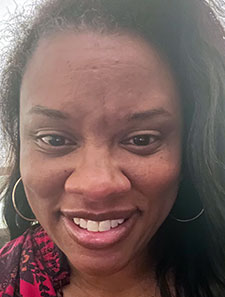This presentation was part of the pediatric track at SHM Converge 2025 in Las Vegas. Jack M. Percelay, MD, MPH, FAAP, MHM, clinical professor of pediatrics at Stanford Healthcare Tri-Valley Hospital in Pleasanton, Calif., discussed key components of a malpractice case, 10 takeaway points for clinicians to protect themselves against unwanted litigation, and what it entails to be a medical expert witness.
Dr. Percelay began the presentation by delineating between harm, negligence, and causation. Next, he explained that the “standard of care” definition, which is “the level of medical care the average provider would provide,” is the basis on which medical malpractice litigation is brought against an individual.
Dr. Percelay’s Top Ten Lessons Learned were described with additional detail as follows:
- It can happen to anyone. People are generally overwhelmed, and things can be missed by anyone. Do not think you are immune to being sued.
- You do not have to be brilliant, but you need to be good. Be a good practitioner by doing the basic items consistently.
- Document, document, document. Beware of the copy and paste. Document the discussions and the little things that happen between the clinician and the patient.
- Be diligent and follow through on all things. If you order it, follow through. Have a sound system for follow-up.
- Communicate effectively. With both families and other practitioners, communicate and be approachable.
- Know yourself, including what you tend to do and your weaknesses. If you know there is a skill set you struggle to execute well, acknowledge where you are and find ways to improve.
- Ask for help. Develop a system or group of people you can ask for help.
- Create a culture that welcomes challenges. Use patient sign-out to challenge and verify. Don’t just pass issues along, ask questions.
- An audit trail exists, and it will be pursued. Protect all conversations, acknowledging that there is always a paper trail.
- Preserve confidentiality. Develop a way to protect confidentiality.
- For those interested in becoming an expert witness for malpractice cases, he offered additional advice, cautioning that a retrospective bias is one of the biggest hurdles when evaluating a case.
Dr. Percelay provided the following step-by-step process to move through a case:
- Limit details on first contact, just look at the general scenario
- Have another person prepare the files for review, so that you can read everything fresh, in chronological order, without knowing what happens in the case
- Take your time going through the case
- Create your preliminary opinions without outside influence from others
- If you need more information, ask before any discussions with the attorneys
- Discuss your findings with the attorneys, then see which side they represent
As you prepare to present your opinion in writing or orally, he cautions you to be thorough and to take additional time if needed. Once you deliver your message, it is important to be succinct and direct in your opinion. Protected or confidential work product is different based on the state, and it is important to know what is expected of you and your work product based on where you are located. While in court, it is important to be steady, calm, and not be angry or confrontational. Dr. Percelay concluded with the reminder that your expertise is valid and valuable.
 Dr. Jones is a clinical associate professor of pediatrics at the University of Missouri, Kansas City, and a pediatric hospitalist at Children’s Mercy Hospital, both in Kansas City, Mo., and a digital media fellow for the Journal of Hospital Medicine.
Dr. Jones is a clinical associate professor of pediatrics at the University of Missouri, Kansas City, and a pediatric hospitalist at Children’s Mercy Hospital, both in Kansas City, Mo., and a digital media fellow for the Journal of Hospital Medicine.